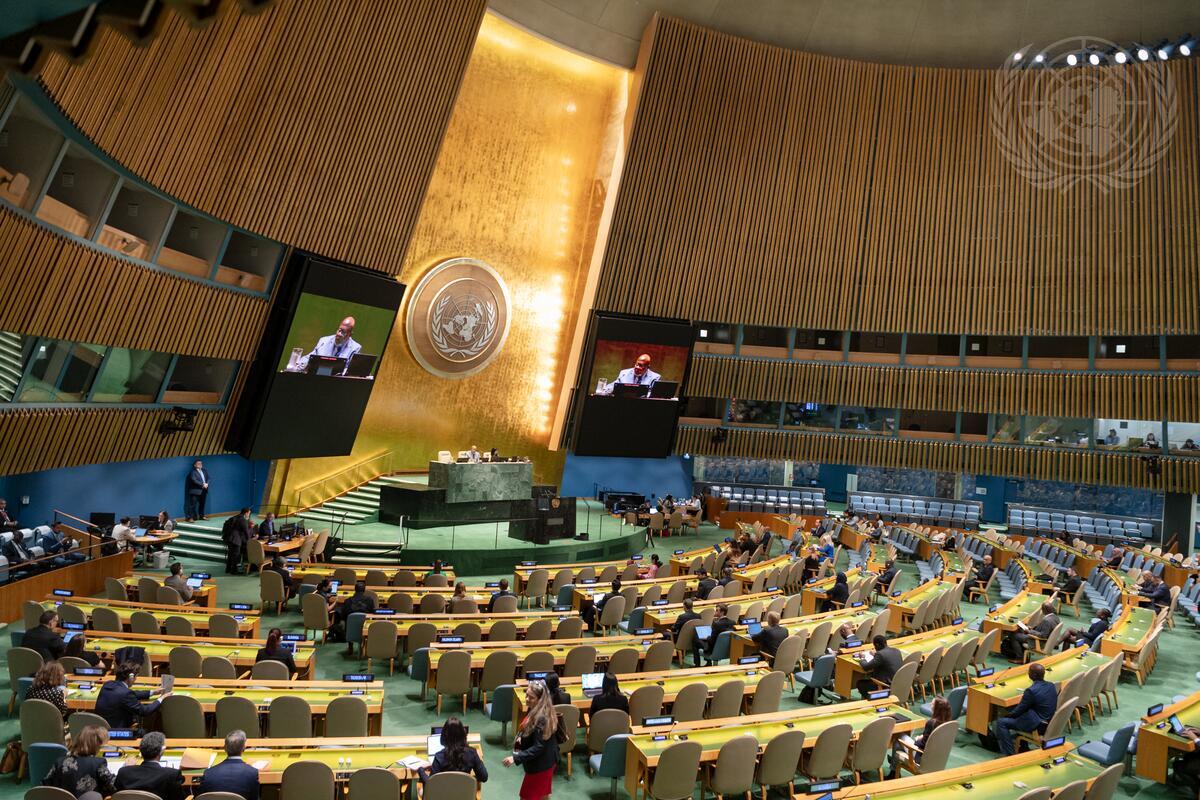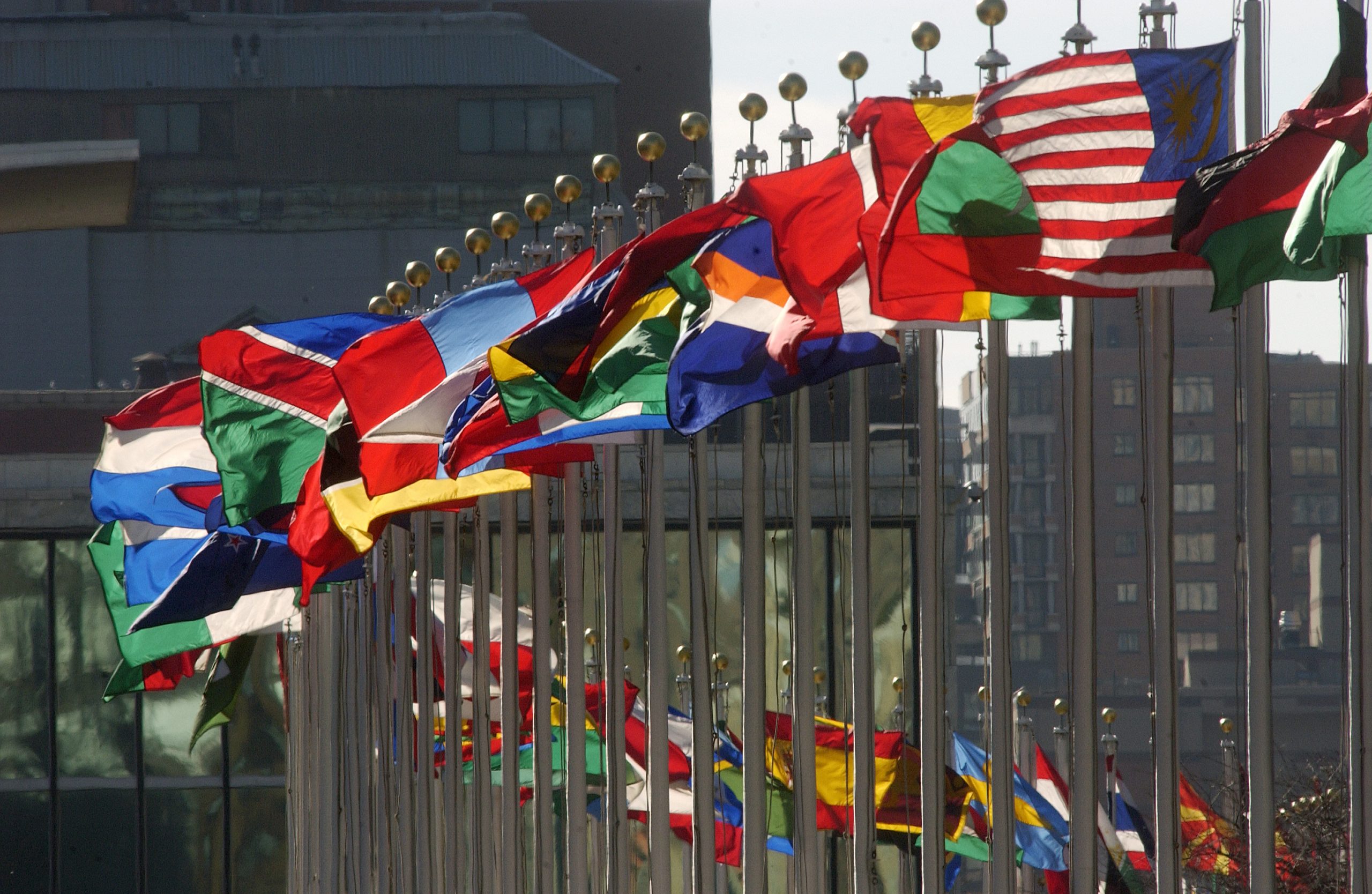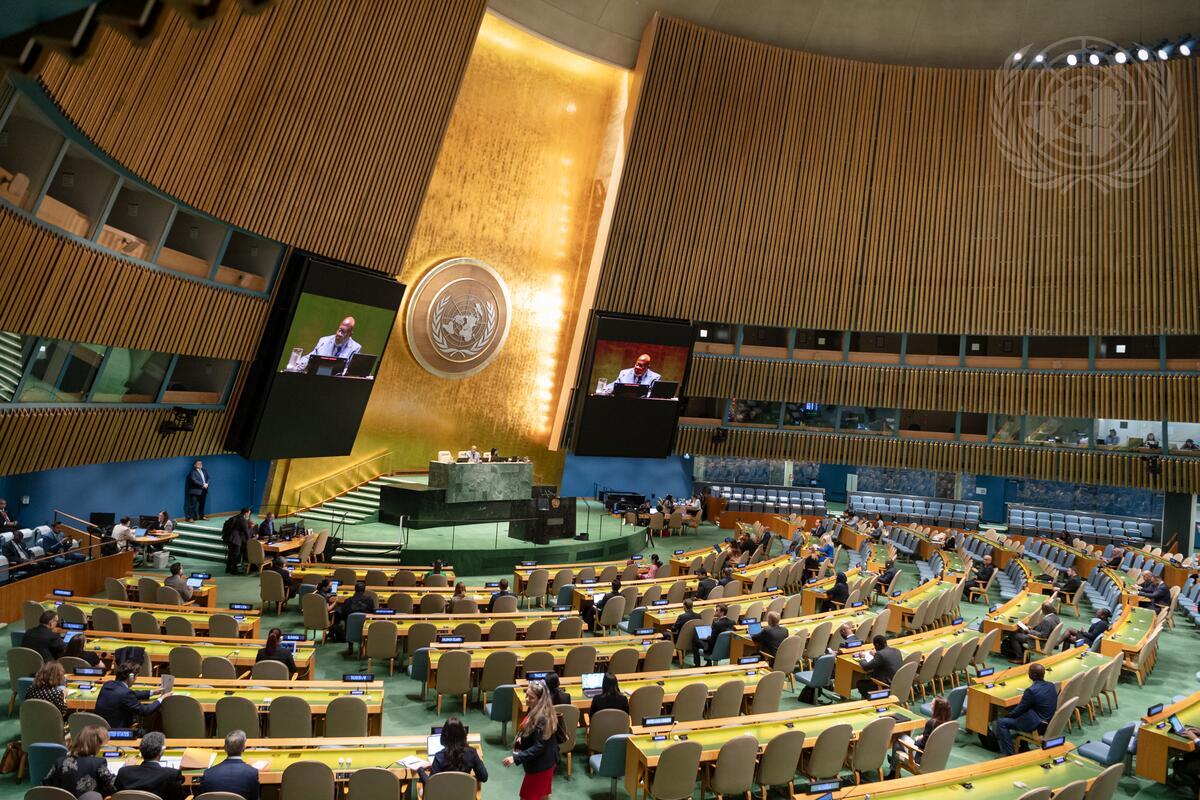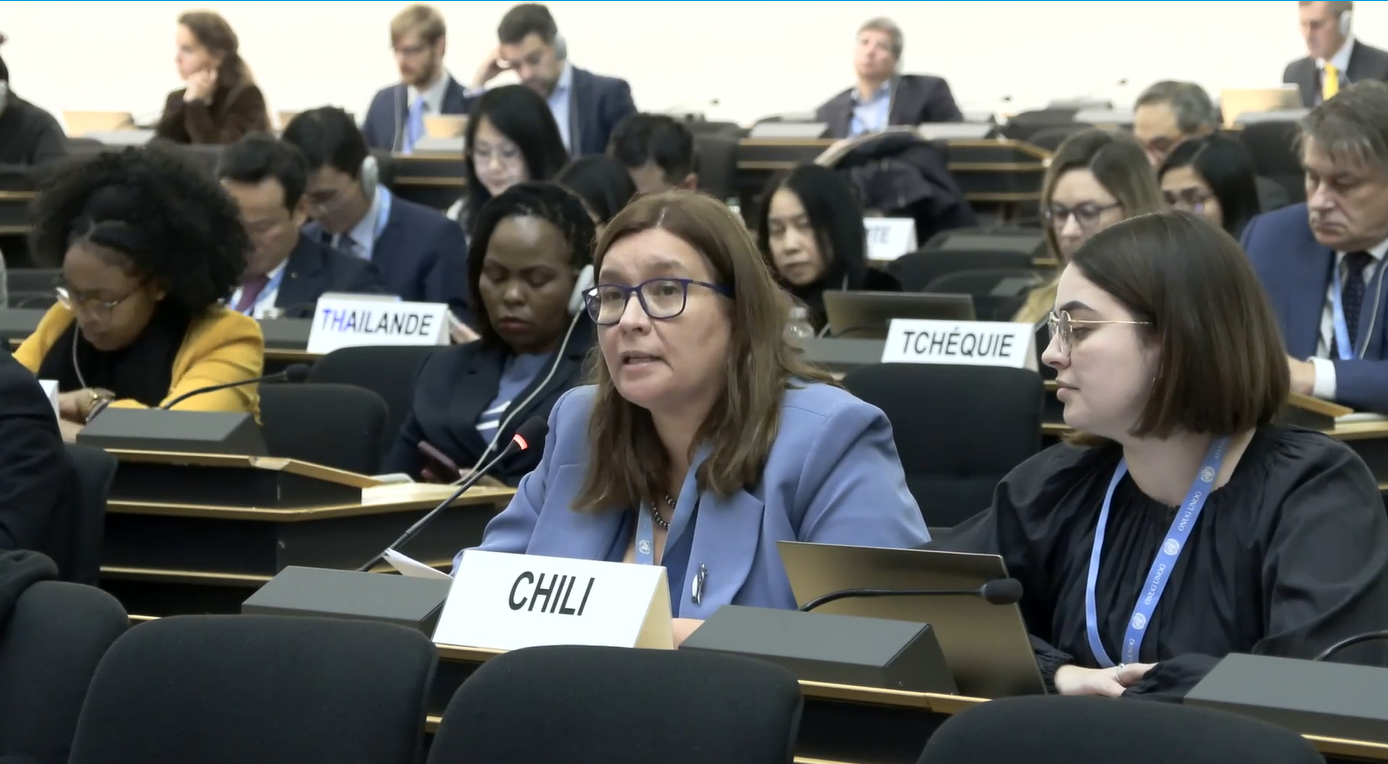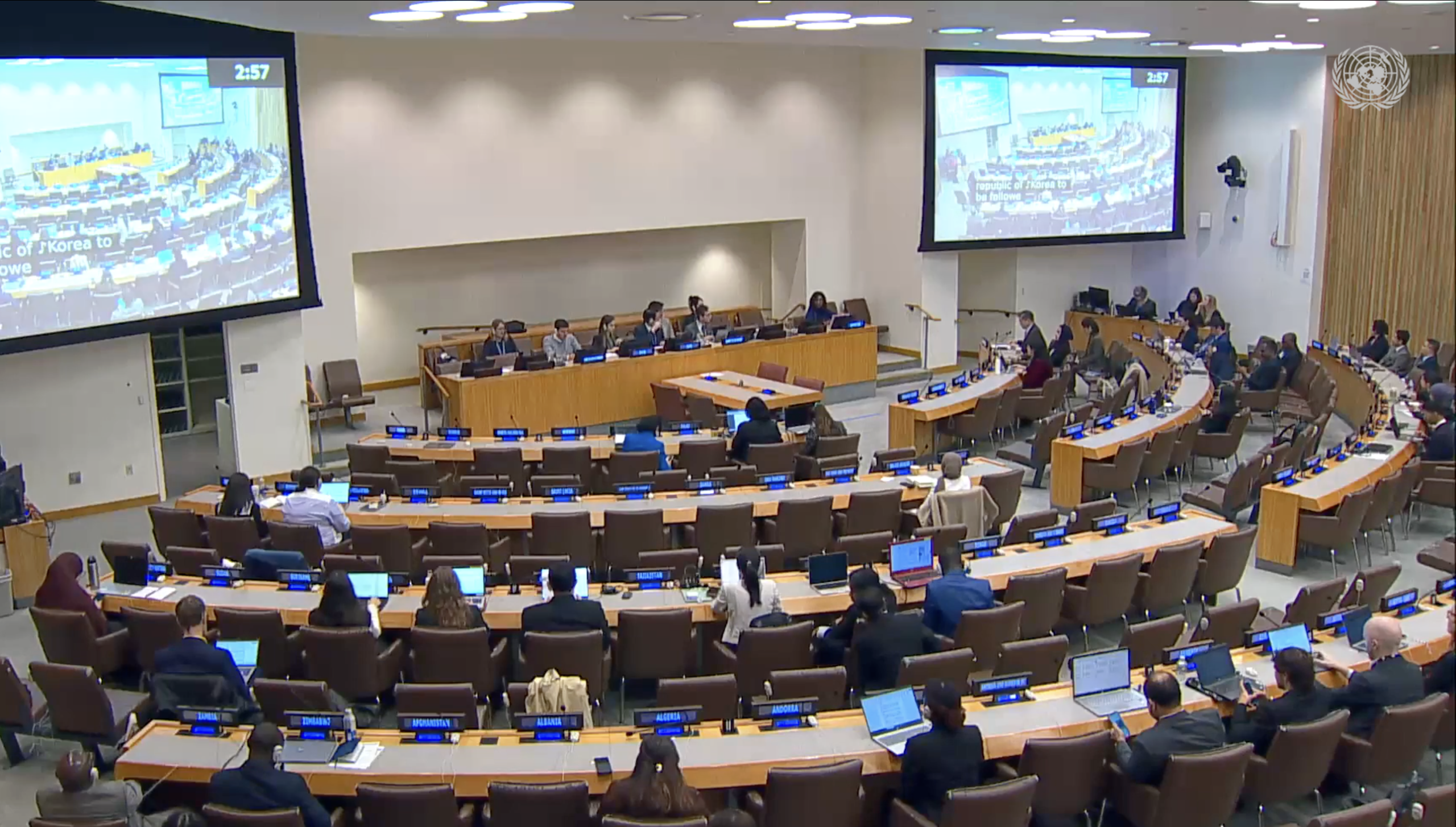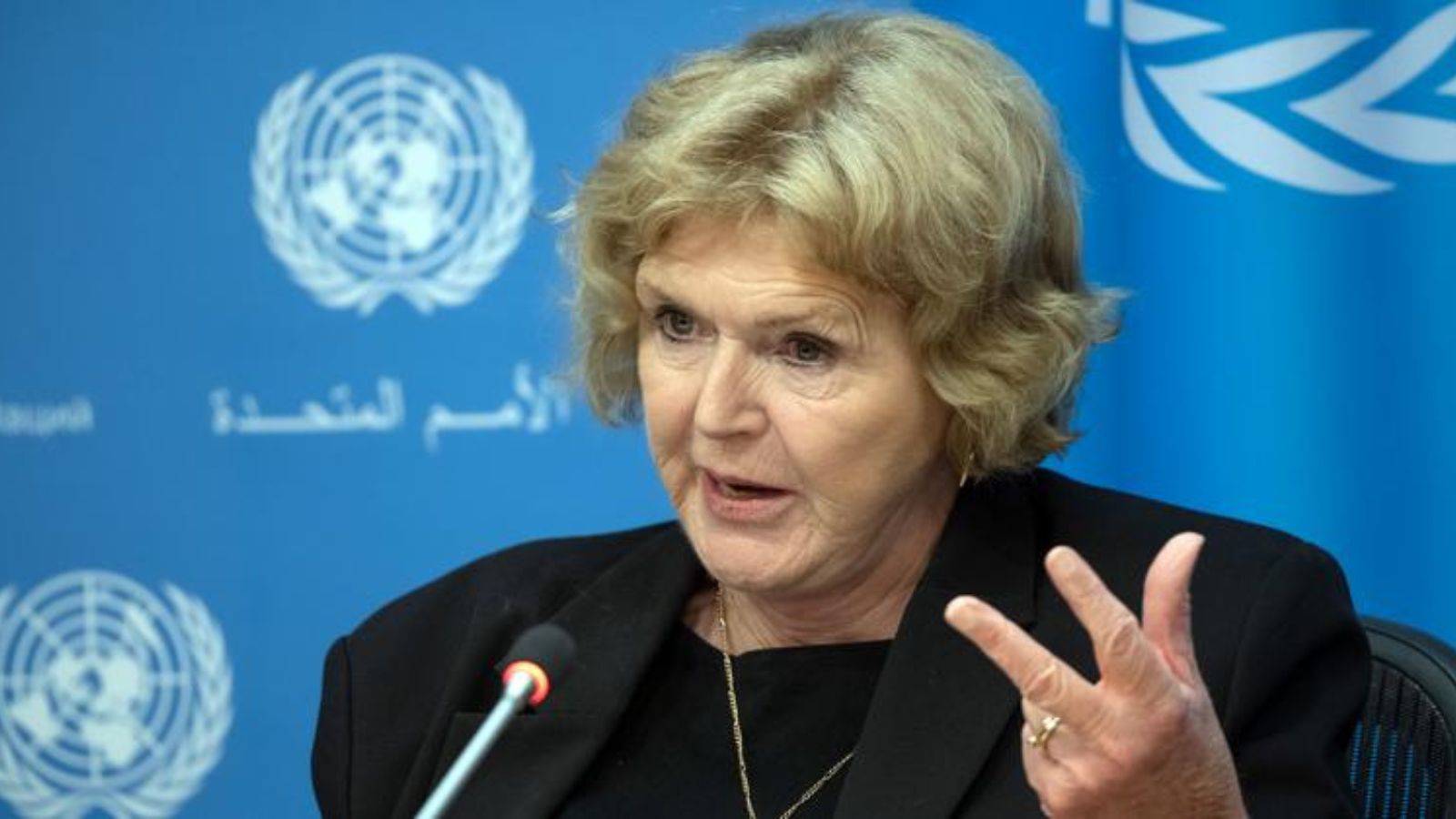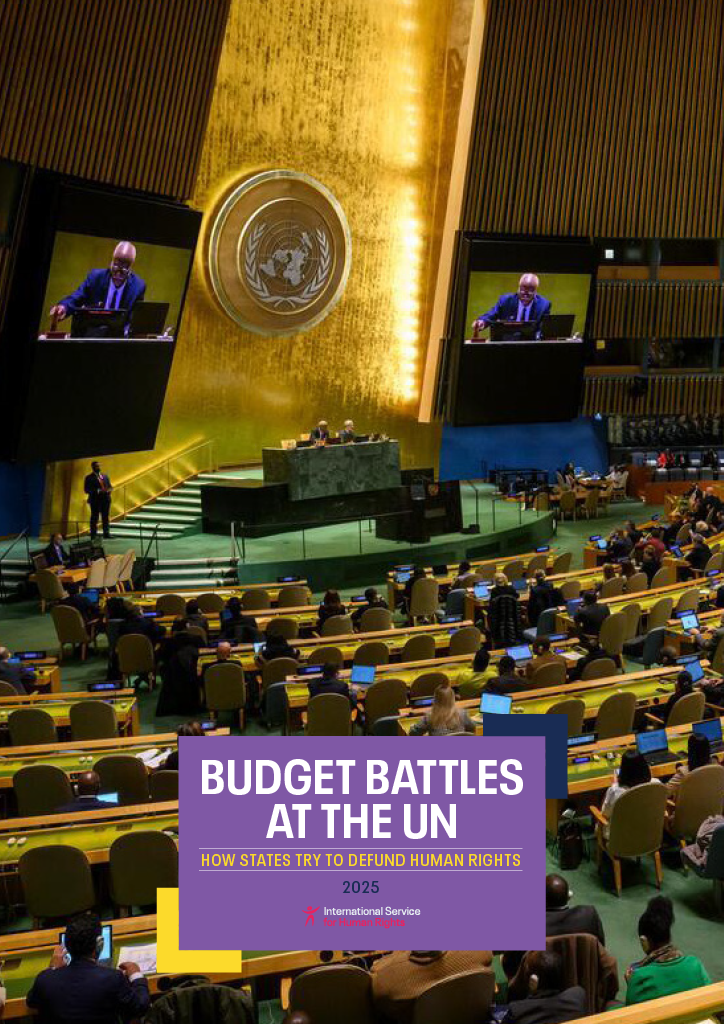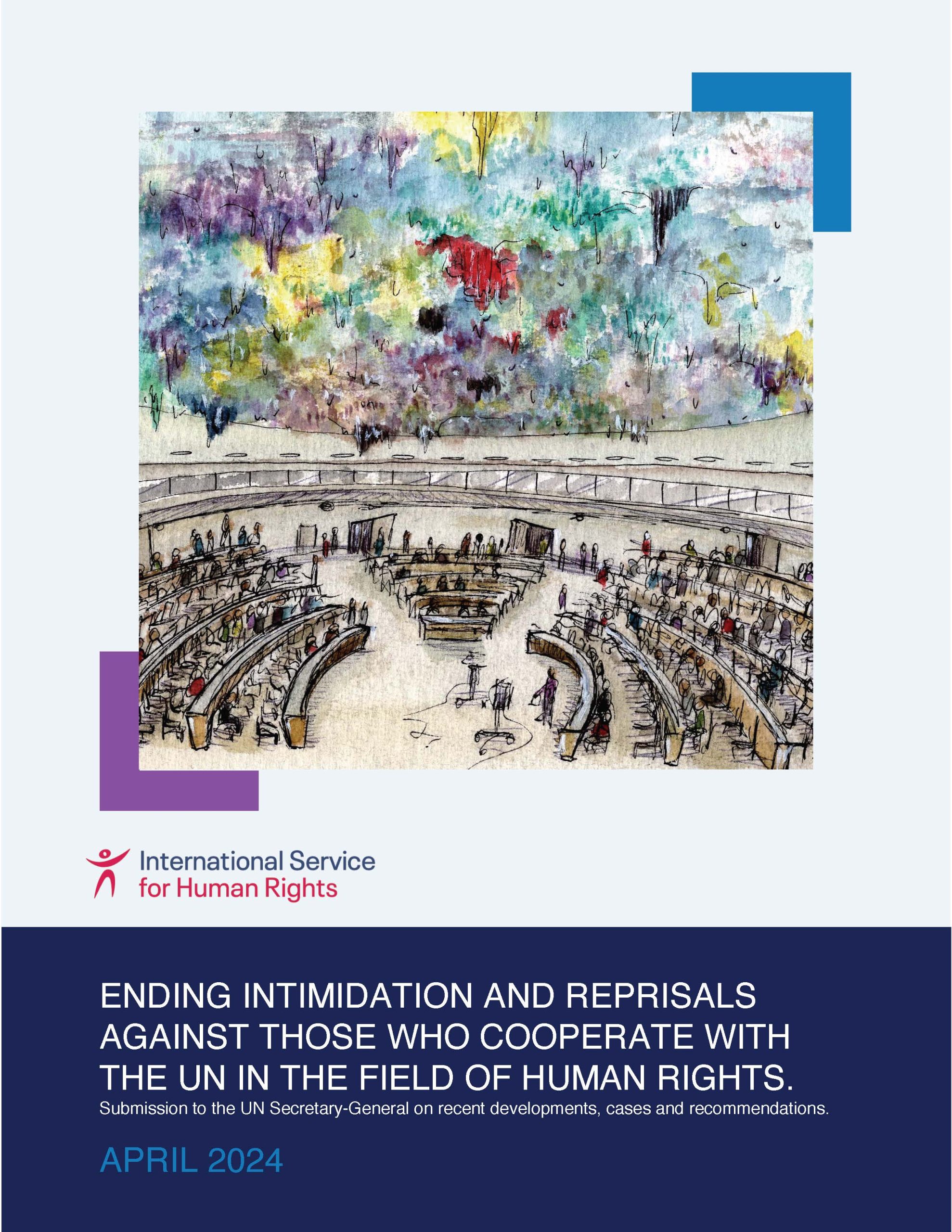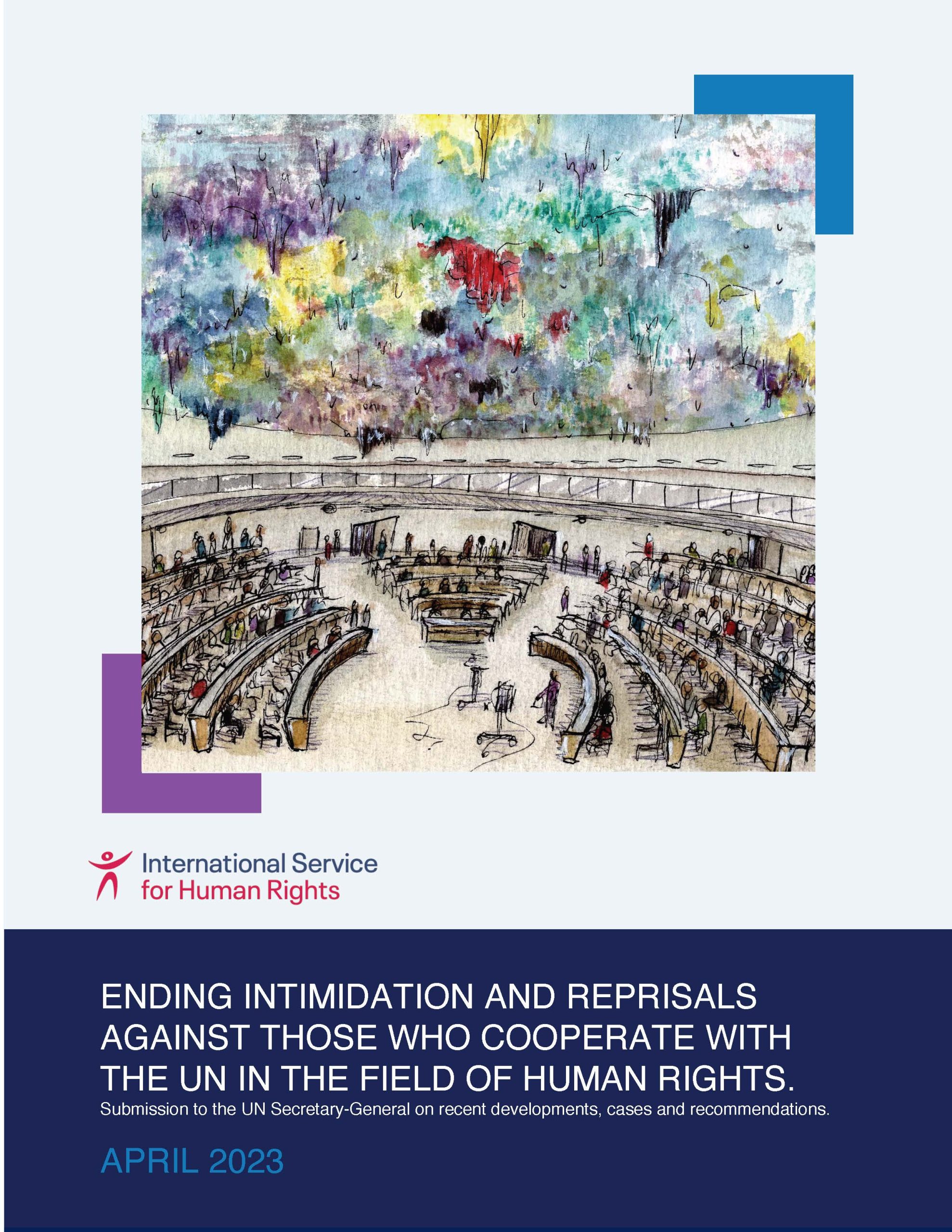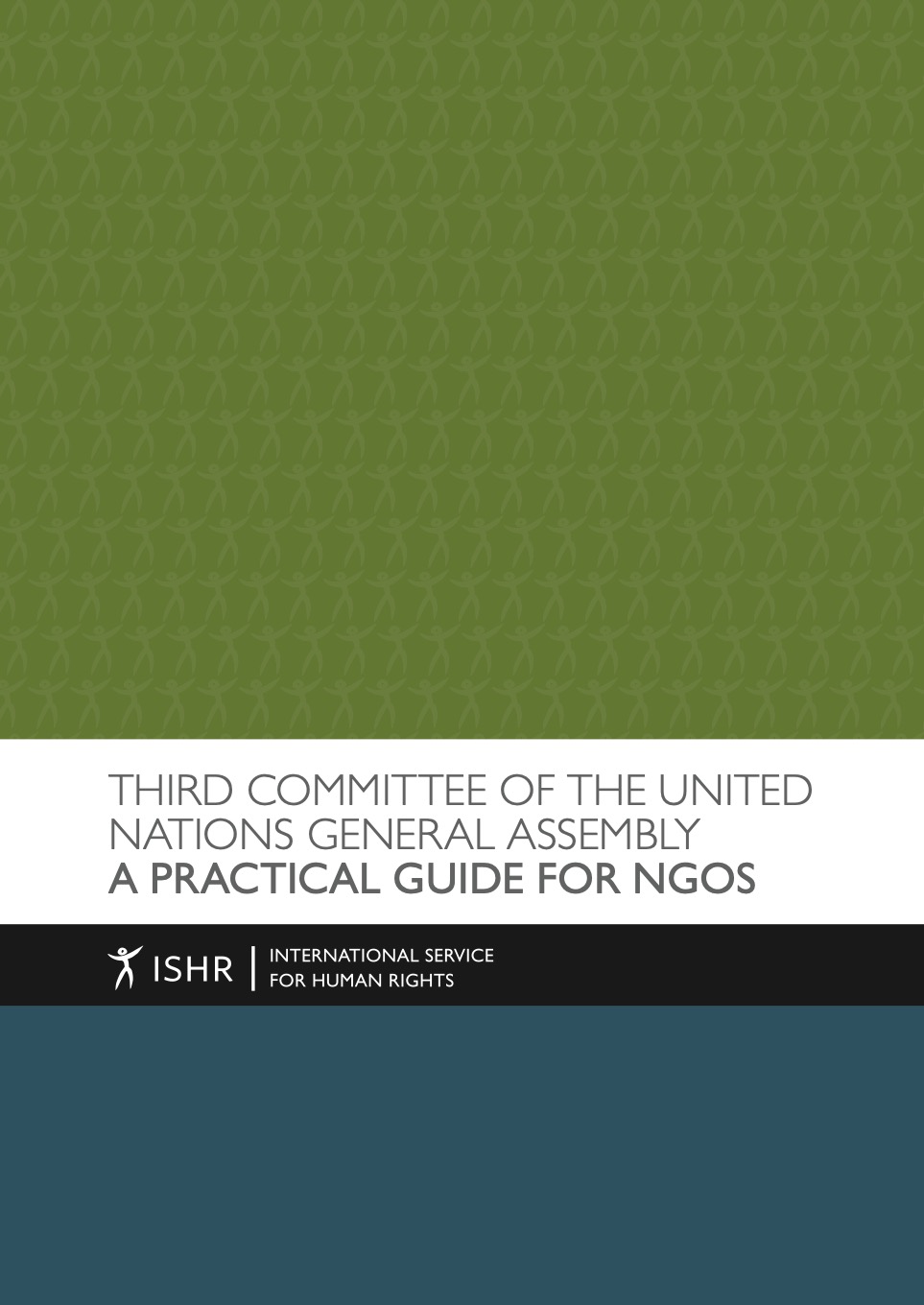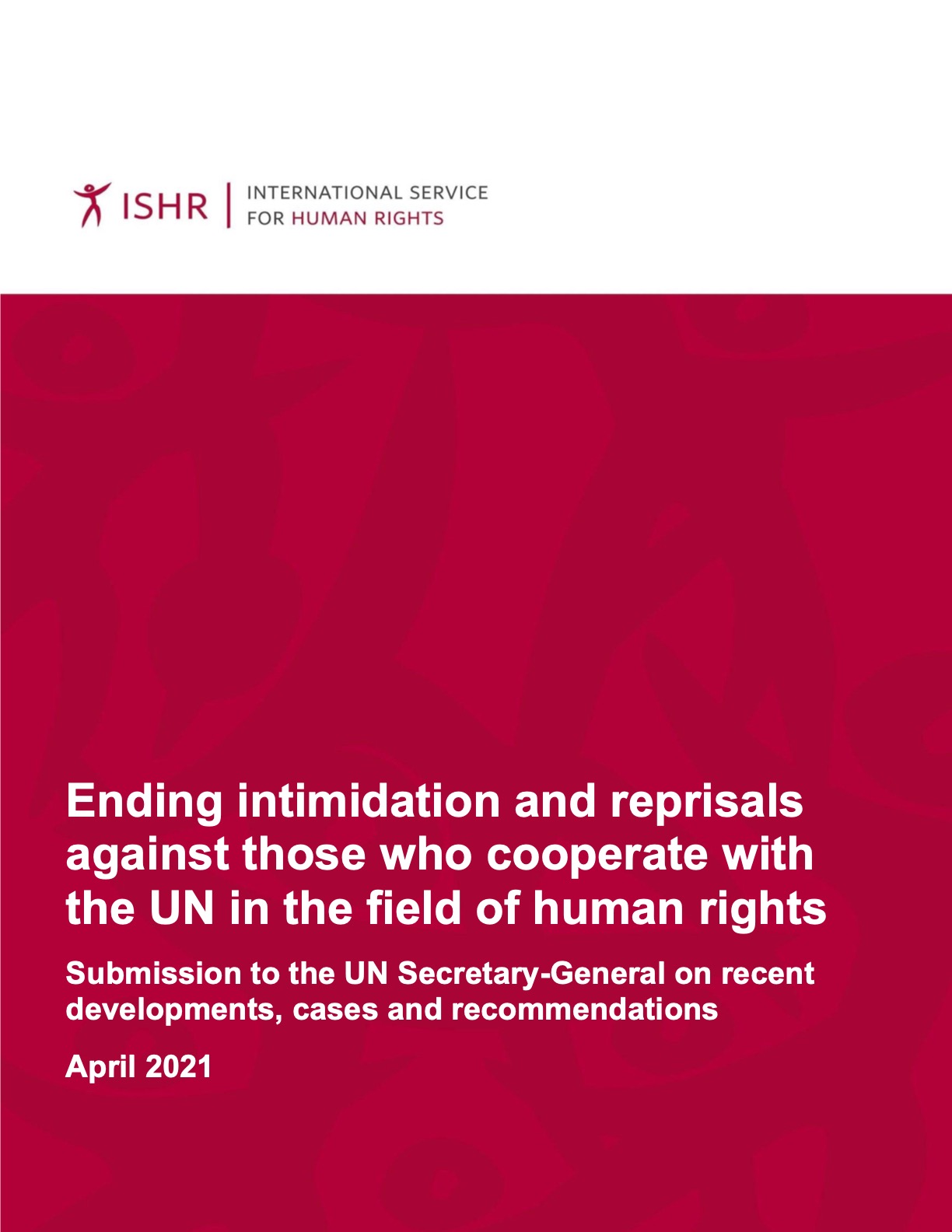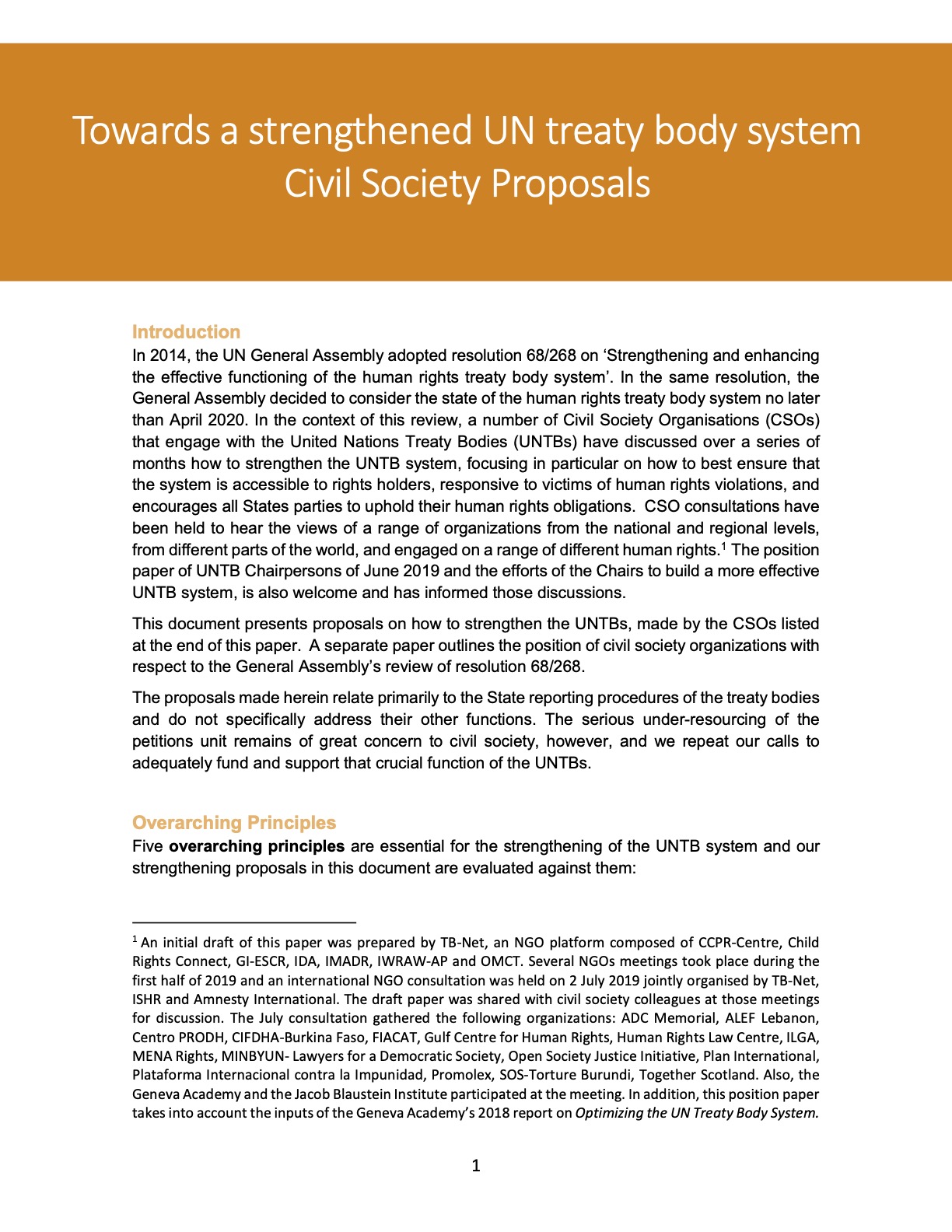Under Article 13 of the Charter, the General Assembly is specifically mandated to ‘initiate studies and make recommendations for the purpose of assisting in the realisation of human rights and fundamental freedoms for all without distinction as to race, sex, language, or religion’.
The plenary regular session of the General Assembly runs from September to December, but can reconvene at any time during the year. Each year the General Assembly addresses over 150 agenda items, which are considered either in the plenary or in one of its six committees.
The Third Committee (Social, Cultural, and Humanitarian) addresses most agenda items relevant to human rights defenders, including women’s rights, children’s rights, indigenous peoples’ rights, and the elimination of racism.
Numerous special procedures also report to the Third Committee on a number of these issues and engage in an interactive dialogue with States. After completing its work, the Third Committee submits draft resolutions to the General Assembly for final adoption.
